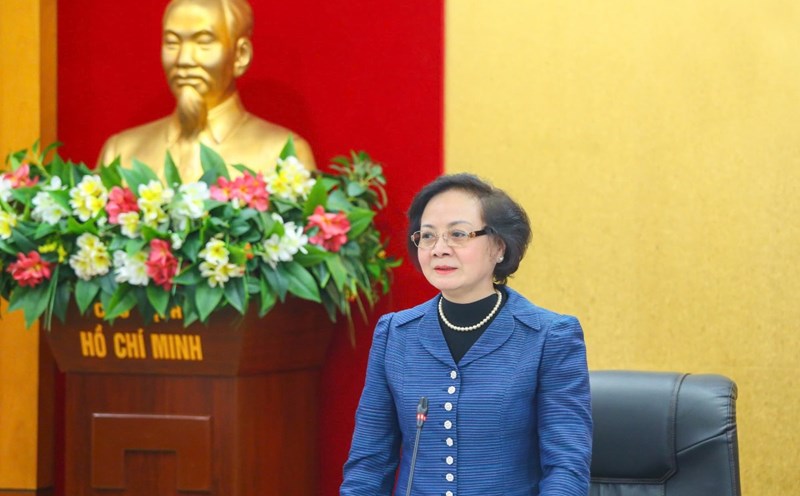According to UOB Bank, the world economy is expected to face many uncertainties in 2025 due to unpredictable trade policies from the US President Donald Trump administration. New developments in the tariff war could increase tensions and disrupt global trade chains, affecting highly open economies such as Vietnam.
However, with support from growth promotion policies, continuously increasing FDI capital flows, expanding public investment and prospects from the semiconductor industry, Vietnam's economy is expected to maintain growth momentum during the year.
According to Mr. Le Thanh Hung - Investment Director of UOB Asset Management Vietnam, Vietnam's economy is expected to continue to grow strongly in 2025 thanks to domestic economic stimulus factors through public investment and credit growth as well as expectations for recovery of domestic consumption and the real estate sector.
Mr. Hung said that the Government submitted to the National Assembly for approval the public investment plan in 2025 of about VND 875,000 billion (equivalent to about USD 36 billion), a sharp increase compared to the actual disbursement in 2024 of VND 568,000 billion. This has created a driving force to promote investment in the public sector, increasing confidence in other economic sectors towards development.
Analyzing further, regarding the impact on the Vietnamese economy during President Donald Trump's second term, Mr. Hung said that Vietnam's export revenue could be negatively affected if the US imposes tariffs on goods from Vietnam; pressure on the USD/VND exchange rate as the USD continues to increase strongly.
In response to US President Donald Trump's tax policy, Mr. Hung suggested that Vietnam should increase imports from the US such as liquefied natural gas, aircraft, agricultural products, etc. to reduce trade surplus with the US. At the same time, Vietnam needs to promote domestic growth drivers such as increasing public investment in transportation and energy infrastructure projects, increasing domestic consumption, promoting credit growth to increase capital for the economy.
Mr. Hung emphasized that Vietnam also needs to expand multilateral relations, upgrade comprehensive strategic partnerships with other countries to expand export markets, attract investment capital, and reduce dependence on the US market.
UOB experts say the prospects for Vietnam's semiconductor industry are positive because there are currently a number of large semiconductor enterprises in the world that want to invest in Vietnam such as the Amkor Technology project with a total capital of 1.6 billion USD, Marvell and Synopsys project, Hana Micron project with a capital of 1 billion USD and Samsung committed to investing an additional 2.6 billion USD in the semiconductor sector in Vietnam.
Previously, in a new economic update report released in mid-March 2025, the World Bank (WB) raised its GDP growth forecast for Vietnam to 6.8% for 2025 and 6.5% for 2026. Thus, the new WB forecast is 0.2 percentage points higher than the previous report.
According to Ms. Mariam J. Sherman - World Bank Director in Vietnam, Cambodia and Laos, Vietnam's economy is forecast to continue to grow strongly in the next two years.
"Vietnam can use its fiscal space to better prepare for increased uncertainty. Public investment to boost growth, especially in the urban infrastructure, transportation and energy sectors, will be very important," Ms. Mariam J. Sherman recommended.











